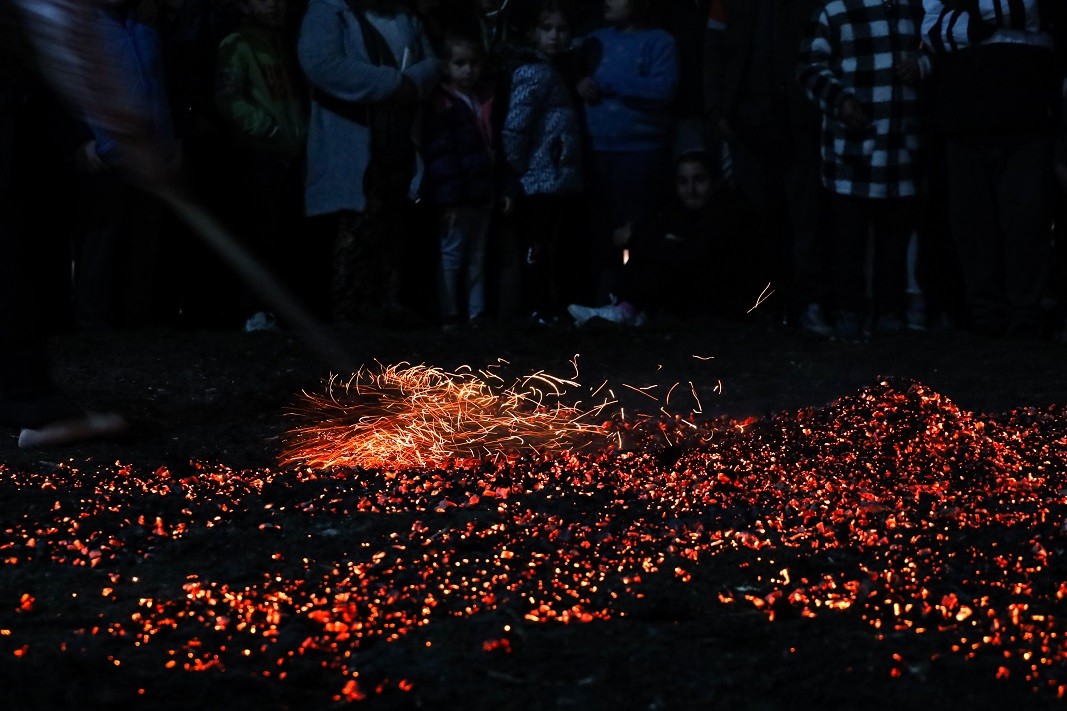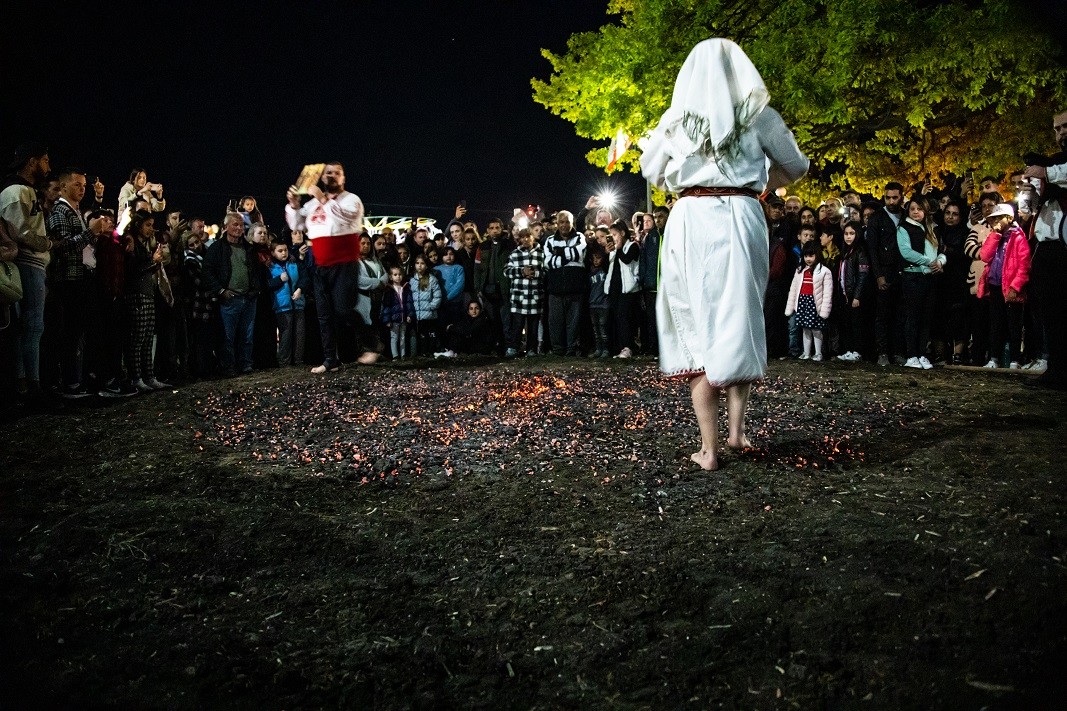Roman emperor Constantine the Great (AD 306 to 337) introduced the Christian religion as official in the Byzantine Empire. His mother, Helena, discovered the cross on which the Savior was crucified and built several monasteries in the Holy Land. The discovery of the Cross is considered the most important event in the history of Christendom, and Emperor Constantine and his mother Helena were canonized as saints.
In Bulgarian folk customs, the feast intertwines the traditions of Christianity with pagan traditions of dancing on live coals - the Nestinari dance. It is preserved to this day in some areas, in its original form. In many places it is also performed as a show for tourists.


For the first time in 500 years, the chants of the Divine Liturgy echoed through the ruins of the medieval monastery ''St. John the Baptist'' on St. John Island near Sozopol. The occasion was the commemoration of the Beheading of St. John the Baptist,..
The church board of the Bulgarian Orthodox Church “Holy Trinity” in Madison, Illinois (USA), has announced on its Facebook page that it needs a priest to serve in the church. “We humbly ask all brothers and sisters in Christ – in the wider..
An archaeological expedition led by Assoc. Prof. Dr. Boni Petrunova – Director of the National Museum of History, discovered a massive bronze statuette of a goddess from the Greco-Roman pantheon. The artifact was found in residential premises in the..

+359 2 9336 661
